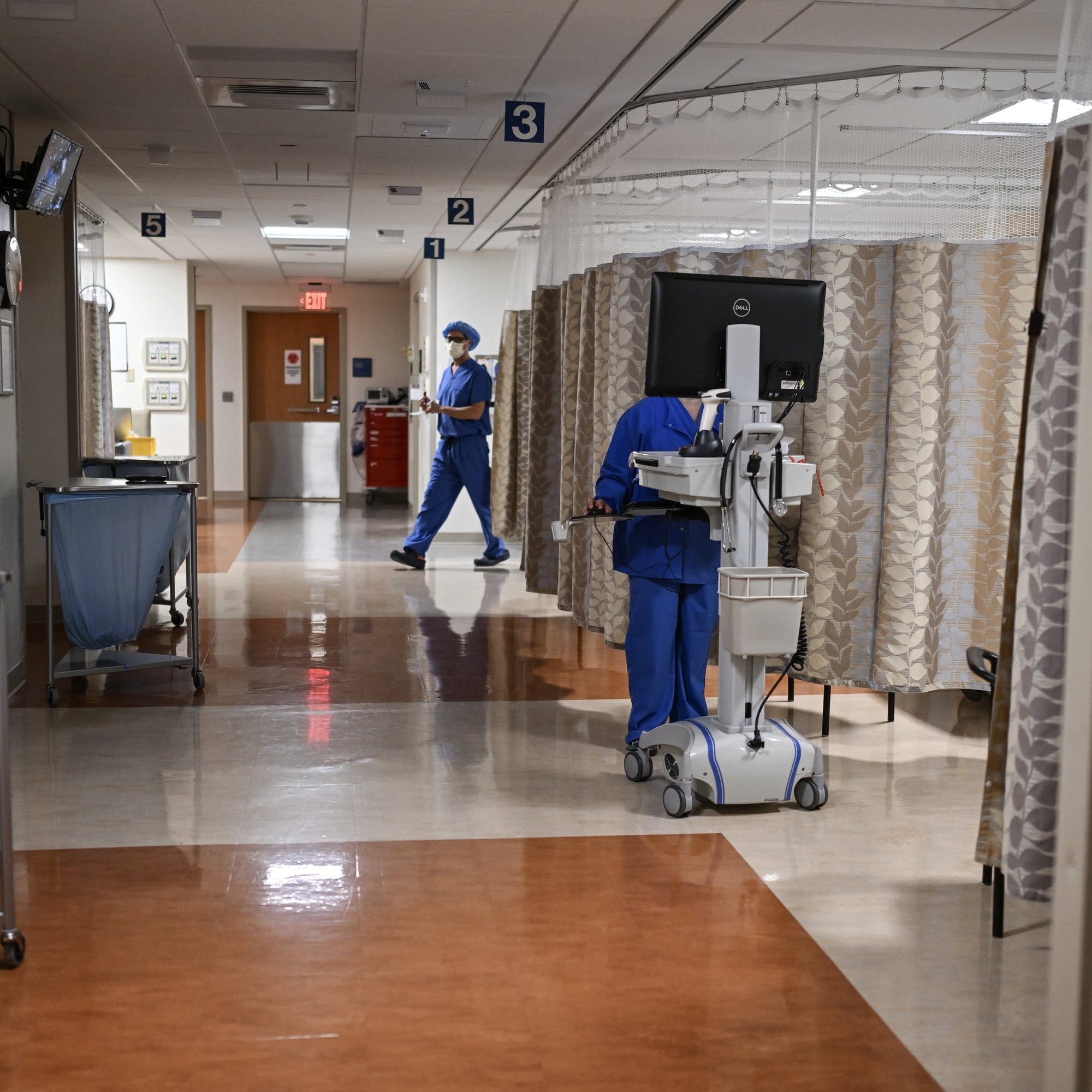
🤖 AI Summary
Overview
This episode explores the economic implications of U.S. policies on tariffs, immigration, and labor markets. It delves into the impact of tariffs on businesses and emerging economies, the looming crisis in the healthcare sector due to potential deportations of immigrant workers, and personal stories of navigating economic uncertainty.
Notable Quotes
- You cannot subtract a huge share of the nursing aides from a nursing home and still have the quality care we need to keep our elder and disabled people comfortable and safe.
– Dr. Steffy Woolhandler, on the potential impact of deporting immigrant healthcare workers.
- The president obviously, he's a tariff man. He's been very proud of that.
– Sadeep Reddy, on Trump's approach to trade policy.
- This is our time. We’ve worked long and we’re retiring in a real tumultuous time. And it’s frustrating because of that.
– David Rhames, on retiring amidst economic uncertainty.
📉 U.S. Tariffs and Their Ripple Effects
- Sadeep Reddy explained how Trump's nomination of Stephen Myron to the Federal Reserve aligns with the administration's tariff-driven economic strategy, potentially influencing monetary policy.
- Tariffs on imports from 90 countries are prompting businesses to raise prices on goods like clothing, food, and cars, noted Jordan Holman. Companies are passing costs to consumers rather than absorbing them.
- Emerging economies like Vietnam and Mexico face downgraded banking outlooks due to reduced U.S. consumption, as highlighted by Elizabeth Troval. Tariffs erode their cost advantages, making foreign investment less attractive.
🏥 Immigration Crackdown and Healthcare Crisis
- The Trump administration’s plan to end Temporary Protected Status (TPS) for Haitians could devastate the healthcare sector, particularly in Massachusetts, where many Haitian immigrants work in long-term care.
- Simone Rios reported that deportations could lead to severe staffing shortages, with some nursing homes already bracing for a 20% reduction in workforce.
- Dr. Steffy Woolhandler emphasized that the healthcare industry is heavily reliant on immigrant labor, and deportations could force nursing homes to close or reduce admissions.
🏠 Personal Finance in Uncertain Times
- Retirees David and Gail Rhames shared their cautious approach to spending amidst economic and political turmoil. Despite stable retirement accounts, they expressed anxiety about the future.
- David noted a shift in his spending habits, opting for generic brands and scrutinizing financial plans more closely.
🎨 Small Business Resilience
- Illustrator and teacher Julia McGuigan discussed adapting her business by closing her physical storefront to reduce overhead. She now focuses on selling Omaha-themed art at farmers markets.
- The supplemental income from her art business has helped her family cover unexpected expenses, like home repairs, after purchasing their first house.
🌍 Global Trade Uncertainty
- The World Trade Organization described global trade as subdued
but noted a slight improvement due to importers rushing goods into the U.S. earlier in the year.
- Persistent uncertainty in the global trading environment remains a significant disruptor, according to the WTO director general.
AI-generated content may not be accurate or complete and should not be relied upon as a sole source of truth.
📋 Episode Description
The U.S. health care sector will lose crucial long-term care providers if the Trump administration suceeds in slashing the Temporary Protected Status program. In this episode, we visit Massachusetts, where many Haitian immigrants at risk of deportation fill critical, low-paid care roles. Plus: Developing economies will suffer if U.S. consumption is stymied by tariffs, and we check in with an artist in Nebraska and retirees in New England.
Every story has an economic angle. Want some in your inbox? Subscribe to our daily or weekly newsletter.
Marketplace is more than a radio show. Check out our original reporting and financial literacy content at marketplace.org — and consider making an investment in our future.
